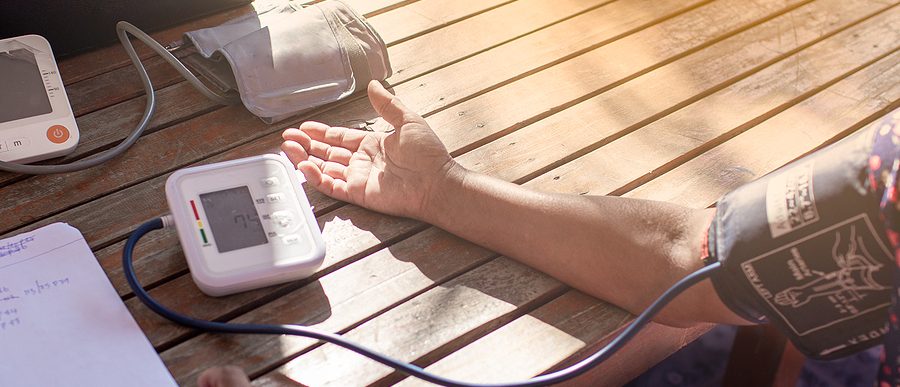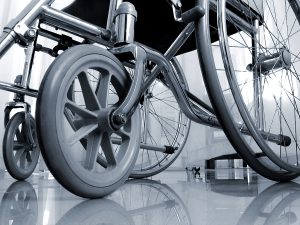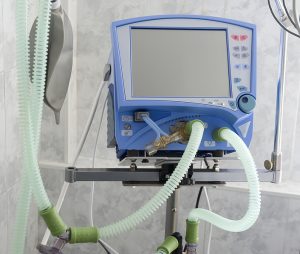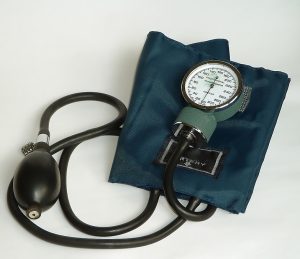Donating Used Medical Equipment

Across the world, a huge disparity exists between trashed medical equipment and people in need of critical health supplies. Many people cannot get the supplies and equipment they need due to high costs and lack of health coverage, while many others do not know what to do with their equipment when it is no longer needed.
Donating used medical equipment, not only gives your equipment a second life but helps patients that may not have the financial resources to purchase equipment on their own. Learn more about donating used medical equipment below. We will cover the types of equipment you can donate, guidelines for donation, and the many benefits of donation.
What Used Medical Equipment Can Be Donated?
When you or a loved one faces an injury or illness, it often requires purchasing medical equipment. Mobility aids, braces, and other equipment can take up a lot of room and cause distress if a loved one has passed away. Donation removes the clutter, keeps the equipment out of landfills, and helps others in need.
There is a wide range of medical items that can be donated. Different organizations may accept only specific items or a broad collection.
Here are items that can be donated:
- Crutches, canes, and walkers
- Wheelchairs and scooters
- Back braces, knee braces, and neck braces
- Ace bandages, slings, and splints
- Orthopedic boots and shoes
- Bone growth stimulators
- Supportive and adaptive equipment
- Home health aides like blood pressure cuffs
- Durable medical equipment (DME) including oxygen machines, hospital beds, and patient lifting devices
- Personal protective equipment (PPE) like scrubs, caps, and gowns
- Consumable supplies like gauze, dressings, tape, bandages, pads, stockings, and diapers

Always check the condition, packaging seals, age, and expiration on items you would like to donate. Knowing the condition of your items will help you find the right place to donate.
Guidelines for Good Donations
Guidelines for medical equipment donation are available from the World Health Organization (WHO) and other organizations that accept donations. You should carefully consider the equipment’s condition, its intended use, maintenance requirements, and the organization’s specific needs. Here is a list of general requirements for good donation:

- Equipment should be in good working order and not require repair.
- Equipment should be thoroughly cleaned before donation.
- Supplies should be unopened and unexpired. Some organizations may accept opened items for medical training purposes, but those should only be donated if they have been expressly requested.
- Equipment that requires accessories to function properly should include all the necessary items. That includes patient cables, transducers, power cords, recorder paper, spare parts, and operator or instruction manuals. Equipment may not be accepted if it is older than 15 years from the date of manufacture.
- Donations should be given in compliance with government policies, regulatory requirements, and administrative arrangements.
Ways to Donate Used Medical Equipment
Finding a home for used medical equipment can be tricky. Many donation centers will not accept medical items as they often require special handling. However, given the great need for medical devices, finding a donation center is certainly worthwhile.
A simple internet search should pull up several resources for medical equipment donation. You will need to research exactly what each organization is requesting to determine if your items are a good fit.
Here is a list of organizations and other ideas to begin your search for a donation center:
Donate Good Stuff
This is a great place to begin your search for donation centers near you. Enter your zip code and select the category “Health and Medical.” This will pull up a list of organizations telling you exactly what they need and who will benefit from your donation.
ALS Foundation
The ALS Foundation provides equipment for people with ALS who are uninsured or do not have access to the equipment they need. They accept new and gently used DME including wheelchairs, scooters, walkers, lift systems, and more.
Assistance League
The Assistance League provides medical equipment to individuals and families in need. They accept equipment donations for their Hospital Equipment Lending Program (HELP) program. They accept grab bars, knee walkers, rollators, transfer benches, and more.
Kids Mobility Network
The Kids Mobility Network is a non-profit organization that provides rehab technology and therapeutic recreation equipment to children. They accept a variety of gently used DME and other items of value.
Project C.U.R.E.
Project C.U.R.E. distributes medical supplies and equipment to healthcare professionals around the world. They accept donations of medical supplies and equipment including home healthcare beds, Hoyer lifts, wheelchairs, and more.
There are many other worthy organizations in need of medical equipment donations. The donation process will vary, so make sure to carefully read the donation guidelines for each organization.
You can also call local businesses to see if they accept donations. Here are some places you could call to see if they have medical equipment needs:
- Nursing homes or long-term care facilities
- Shelters
- Fire and police departments
- Community centers
- Childcare centers
- Churches and worship centers
- Schools, colleges, and universities
- Department of Public Health
You can also offer private donations to your neighbors and community by reaching out through social media platforms such as Nextdoor and Facebook Marketplace.

The Benefits of Used Medical Equipment Donation
Donating medical equipment is an excellent way to help those in need. Medical costs can be a huge burden to individuals and families already struggling with an illness or injury. Being able to alleviate some of those worries is an enormous privilege and benefit in and of itself. Additional benefits include protecting the environment and tax deductions.
Environmental Benefits
Medical waste has caused a massive environmental crisis. Toxic emissions, plastic pollution, reduced air quality, and water contamination are just some of the effects of medical waste in our landfills. Donating medical supplies and equipment reduces the amount of waste and the need to manufacture more items, decreasing the negative environmental impact.
Tax Benefits
Medical equipment donations can be used as a tax deduction when donated to non-profit organizations recognized by the IRS. Qualified organizations meet the requirements under section 170(c) of the Internal Revenue Code. Generally, you will be able to deduct the fair market value of the item. Itemize your deductions and always request a receipt for your donations for tax benefits.
What Can I Do if Donating is not an Option?
If your equipment is too damaged or too old for donation, you have a few other options. You can attempt to resell your items or dispose of the equipment.
Resale
Reselling your items may help you recoup some of the expenses you have spent on your equipment. Some organizations will purchase used medical equipment to refurbish and resell. You can also list medical equipment for sale on websites like eBay, Craigslist, LetGo, and Facebook marketplace.
Recycling
When donation and resale are not an option, recycling is the next best choice. Most medical equipment has valuable recyclable components. Recycling contributes to a circular economy that helps to eliminate waste and keep resources in use for as long as possible. Certified recyclers will deconstruct your equipment and recycle its components based on current guidelines.
Disposal
As a last resort, medical equipment can be thrown away. Batteries should be removed and sent to a hazardous waste facility. Everything else can be sent to a junk removal business to be disposed of safely.
How Medical Waste Pros Can Help
Medical Waste Pros partners with a nationwide network of providers to assist with all of your medical waste needs. From regulated medical waste to sharps and medication disposal, we have options to meet your specific needs. Give us a call at (888) 755-6370 or fill out the form to connect with certified medical waste professionals in your area.










